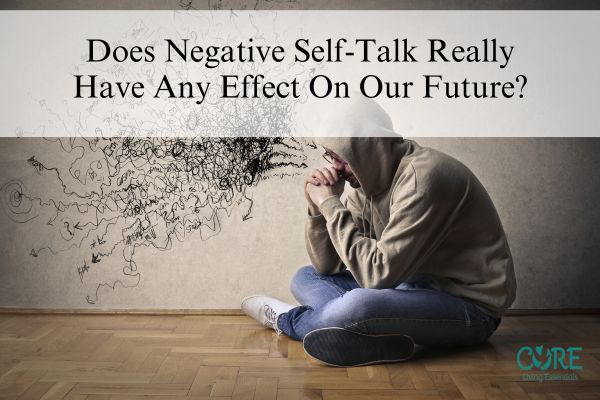This is My Marriage Not Yours
Question- This same comment came from both the husband and wife- “He or she just doesn’t
seem to care; there is not enough tenderness or support and there is no connection- just
loneliness.”
Answer- There are probably a lot of couples feeling the same way. Why is that? Why would two
people in the same relationship feel that same loss? Is there a solution for both of them?
This problem presents two main principles. The first is our expectations in a relationship and
the second is self-deception. Both of these principles are based in fear of not being good
enough and fear of loss. How hard is it to show love to others when you feel empty too?
To find a solution to that last question, let’s look at each principle separately.
Expectations – We often tell ourselves that if we lower our expectations, then others will never
reach their potential. In reality this is not true. It sounds right, yet it really does not inspire
others to improve. In most cases, it causes anxiety and further enhances their feelings of not
being good enough. Try using the term ‘managing our expectations’. You have probably heard
the phrase that if you expect a fish to climb a tree, you will be very disappointed. The catch to
the phrase is that we also need to keep in mind that the fish is no less a fish if he can’t climb a
tree. He is still an amazing fish. We are still amazing people, even if we fall short of an
expectation.
We all have expectations in our lives: what we want out of life, who we want to become, and
even what our partners should be. But really, a large part of personal happiness is in managing
our expectation of people and circumstances. Let’s make our expectations real. One major
challenge we face in life is learning to accept people for who they really are. Our expectations
of another person will not change who a person really is. When our expectations are too high or
even to low, it really causes us more pain and disappointment. Being more realistic with our
partner’s abilities can make us happier and can relieve a huge burden we feel we carry.
Every one of us has gifts or intelligences. Yes, we can learn more about other intelligences, yet
we do have some that are uniquely ours. For example:
1- Musicians seem to have an amazing gift to understand music, to feel the music, and to
share what they do. We can’t all be concert pianists.
2- Kinesthetic – Those are the people that make a lot of money playing ball. How many of
us can make a living with how well we handle a ball? There are a good many of us that
are not sure what to do with a ball if we had one in our hands.
3- Emotional intelligence – the ability to understand and manage our own emotions and
the emotions in others. It is very true that a lot of people lack the ability to be aware of
their own emotions and they lack the ability to see emotion in others. This is one area
we should cultivate. It may not be possible for some to improve in this area, yet we can
all learn more about empathy and understanding.
The list of gifts continues infinitely. Think about your gifts? Is it making friends, cooking, fishing,
organizing, public speaking, teaching children, sewing, artistic, and many more?
Let’s look at some hardcore examples of what I discussed above. For example, if you are
married to a person for 17 years and your spouse still won’t take the garbage out until you nag
them to death, try to see if it is that they are just not capable of seeing what needs to be done.
Or if they only sent you flowers when you were dating, then the amazing thing was that they
did it once. They may not have the ability to see that it makes you happy. This would be a good
time to stop and make a list of his or her abilities and your abilities. Ask yourself some of these
questions:
• How can you use these differences to enhance your marriage instead of putting a wedge
in it?
• Is this where chores and obligations need to be changed?
• Is this where we need enlightenment or more instruction from others?
• According to your gifts what needs to be changed?
This is the same principle for expectations for ourselves.
• Are we excepting something different than what we were meant to be?
• What do you love doing?
• What is a struggle?
• What do you need to learn?
• What do you need to let go of?
These questions and ideas are a great topic of discussion for the two of you! Do it and build a
stronger connection.
Working together on our struggles makes us stronger if we allow it. If we fight against that by
continuing to expect more than can be given, we also weaken ourselves. The strongest people
are those who learn to understand others and give when needed, and teach when needed.
When things do not work out the way we had planned, it is much more beneficial to realize that
this is how life works rather than becoming frustrated at the situation. Life will always throw us
a curve ball.
Give without expectation, accept without reservation, and love unconditionally.
Self-Deception- None of us like to think of ourselves as selfish. We can easily see it when others
are selfish, yet in ourselves, we often view our actions as standing up for ourselves and that
everyone should see life the way we do. Facts are facts, right? Or is some of that opinion?
When we can’t or won’t try to see another point of view, we deceive ourselves. We even have a
tendency to lie to ourselves about the smallest details, self-deception. For example, how much
we really ate today, or how much we really spent on an item. How many of us put down our
real height and weight on our driver’s license? We lie to ourselves because we do not want to
admit the truth and deal with the consequences. We, in our deepest hiding places, constantly
feel we are not good enough, yet we do not want others to know that. We are imperfect, yet
we like to think that at least we are more perfect than others. We would never make that big of
a mistake!
We learn cognitive distortion at a young age, which is irrational in the way we think. A child
two years of age scribbled on his mother’s couch with a marker. The mother screams at him,
grabs the marker away, and may even say you’re a bad boy then spank him. He could interpret
that in many ways:
1- He is bad.
2- Markers are scary.
3- His mother doesn’t like his artwork
4- Or maybe that markers are very harmful objects.
When he grows up and in his junior high class the kids in his class start throwing markers
around the room and he freaks out and hides under his desk. That seems very illogical yet if you
knew how he was thinking, it would make sense. He was acting out his deeply hidden fears. The
fears in reality were not grounded in truth, yet that was what he experienced and believed.
How many of our beliefs about life and ourselves are hidden in misinterpretation? We, at times,
believe that how we feel is reality. That again could be a lie we are telling ourselves.
Self Deception Indicators:
When these thoughts cross your mind, you are deceiving yourself:
• We start making conclusions and stories about our environment and about other
people. These interpretations we made, whether they were right or wrong, affect our
identity and how we choose to treat others.
• We think we need to be perfect to be loved.
• We believe that to love others, they have to be perfect.
• When others mention our weakness, we become very defensive
• What we learn as a youth will stay with us as adults and come out as living a life of lies.
This also comes out in our relationships.
• We think or say, “I wouldn’t have yelled at you if you wouldn’t treat me so bad.”
• We think or say, I wouldn’t do this or that, if you wouldn’t do this or that.
• We feel justified in being less than we could be just to not expose ourselves for who we
really are; a person who is constantly wanting to give love and get love.
• We deceive ourselves to avoid the pain.
• We forget that we really are human.
• We often make comments like, “I am this way because that is how I was raised”, which
is putting the blame on our parents.
• We think or say, I am this way because of this or because of that, therefore, it is not my
fault or my problem.
These concepts prevent us from reaching our potential and reaching happiness but we are not
the only ones affected. In self-deception, we often make decisions that are harmful to others
also. We deceive ourselves in believing that our significant other should fulfill all of our needs
and all of our wants. That is self-deception.
We have the choice to continue to live life in lies remaining in incredible pain continually
pushing our pain onto those we love or we can choose to change. Our feelings, most of the
time, have nothing to do with the people around us. These feelings are part of our
interpretation of our experiences and can be deceiving. Can we catch the moment when we
interpret it poorly?
We need to become observers of ourselves. The problem with that is that we need to evaluate
our thinking with our own thinking. We need to be very honest and dig deep into our hearts.
Ask yourself, what does this say about me? What was my contribution to this problem? The
more we become aware of our inaccurate thinking, the more we can become responsible for
our choices. We may not have control over all of our situations in life yet we do have control
over our reactions and our willingness to learn from them, and to allow others to learn also.
Ask your self- What if my whole life changes? What if my whole life doesn’t change? Use the
truth to help you find the most fulfilling life for you.
How does this look in a marriage? You cannot hide who you are for very long. Eventually it will
be known. Remember that your spouse is in the same boat as you. He or she is also struggling
with fear, self-deception, and expectations. This would be a great time to get together and
answer all these questions and also do the free download together. It may excite you, or
disappoint you, yet what it will do is bring connection and remember the truth always sets you free.
Deception.
If you would like further discussion or help in finding your truth email me or take the free assessment on my website and start the core living process.
kristena@corelivingessentials.com
Kristena Eden
























 Our Answer:
Our Answer:


